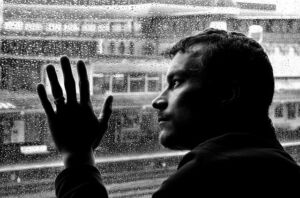News
Blue Monday: is the third Monday of January really the most depressing day of the year?
This article is more than 9 years old.
Some Brits say that Blue Monday is real, others have no idea what it is

Feeling blue this Monday? (photo: PD)
Today, the third Monday in January, is Blue Monday in the UK, supposedly the most depressing day of the year. It’s a day when people are said to feel miserable as they struggle to pay holiday debt, deal with miserable weather and uphold new year resolutions.
As near as anyone can tell, the idea has no basis in fact and was created in 2005 by a British holiday company, and a recent survey of Londoners showed that 85 percent didn’t know when Blue Monday was supposed to be and that a third had no idea what it was.
Other researchers noted that most Brits – and people in general – actually look forward to January and getting back into a routine after the long holiday break.
Holidays sadder for many
Danish child welfare group Børns Vilkår said that for Danish young people, it is holidays, not the months after that lead to depression.
Approximately every fifth call to the children’s helpline BørneTelefonen was made by a young person who said that Christmas and New Year was causing them to feel lonely and resulting in thoughts of suicide or self-harm.
Merete Toft, a professor at the Institute of Clinical Medicine in the Capital Region, said the spike of suicidal thoughts among young people during the holiday are based on unrealistic expectations of a perfect Christmas. Increased alcohol consumption over the holiday period can also amplify depression.
How blue is blue?
A nationwide study published in December 2013 by the Center for Selvmordsforskning, the centre for suicide research, showed that 5.45 percent of the 3,249 young people surveyed at public and vocational schools had attempted suicide. Nearly 15 percent of them had tried to harm themselves.
A more recent study showed the number of young people under the age of 29 who tried to commit suicide with pills had actually dropped by almost a third, from 1,153 suicide attempts in 2010 to 430 in 2014.
READ MORE: Study finds a link between pollen and suicide rates
Whether Blue Monday is real or not is perhaps in the mind of the potential sufferer. A certain well-known Dane, whose tale was told by a certain well-known English scribe – that Shakespeare fella – offered up his own cure for the blues.
“There is nothing either good or bad, but thinking makes it so,” mused Hamlet. If only he’d taken his own advice.










































